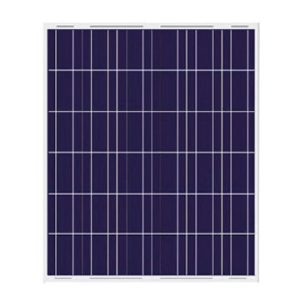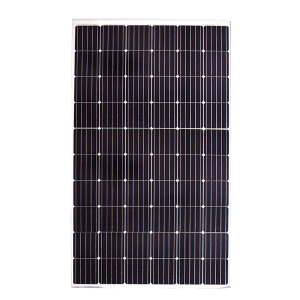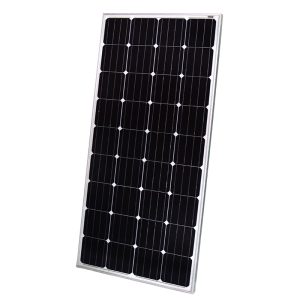As Pakistan grapples with an energy crisis and rising electricity costs, the demand for solar panels as an alternative energy source has surged. The country’s favorable climate conditions and government initiatives have paved the way for the adoption of solar energy solutions, particularly in the residential, commercial, and industrial sectors. Among the various solar panel options available in Pakistan, the 480W range has emerged as a popular choice, offering a balance of power output and affordability. In this comprehensive analysis, we delve into the key aspects of 480W solar panels, exploring top brands, technology comparisons, pricing trends, installation considerations, and future prospects.
Introduction to Solar Energy in Pakistan
Pakistan’s energy crisis has been a long-standing challenge, with frequent power outages and soaring electricity prices affecting households and businesses alike. The country’s reliance on traditional fossil fuels and an aging infrastructure have exacerbated the situation, prompting the need for sustainable and cost-effective energy solutions. Solar energy has emerged as a viable alternative, offering a clean, renewable, and abundant source of power.
The Pakistani government has recognized the potential of solar energy and has implemented various policies and incentives to promote its adoption. These initiatives, coupled with declining solar panel prices and increasing awareness of environmental concerns, have fueled the growing demand for solar panels across the country.
Top Solar Panel Brands Available in Pakistan
Several leading solar panel manufacturers have established a presence in the Pakistani market, offering a wide range of products to cater to diverse needs and budgets. Among the top brands available for 480W solar panels are:
Longi Solar Panels
Longi Solar, a renowned Chinese manufacturer, is known for its exceptional quality and durability. Their 480W solar panels are suitable for diverse weather conditions, making them an ideal choice for Pakistan’s varying climate. Longi offers both monofacial and bifacial panel types, with the latter capable of capturing light from both sides, potentially increasing energy yield.
Jinko Solar Panels
Jinko Solar, one of the leading solar panel manufacturers worldwide, has gained a strong foothold in the Pakistani market. Their 480W solar panels are renowned for their reliability, cost-effectiveness, and durability. Jinko’s panels are designed to perform efficiently even in cold weather conditions, making them well-suited for regions with cooler temperatures.
Canadian Solar Panels
Canadian Solar, a global leader in solar energy solutions, offers a wide range of 480W solar panels for the Pakistani market. Their panels are known for their high-yield and long-term performance, backed by rigorous quality control and testing processes. Canadian Solar provides models suitable for both on-grid and off-grid applications, catering to various residential, commercial, and industrial needs.
Trina Solar Panels
Trina Solar, a pioneering solar company, has introduced its innovative 600W+ Vertex Series with 210mm wafer sizes to the Pakistani market. These panels are confirmed to deliver the lowest balance of system (BOS) and levelized cost of energy (LCOE), making them an attractive option for large-scale projects. Trina Solar’s advanced solar ecosystem, including the TrinaTracker, further enhances efficiency gains.
Monocrystalline vs. Polycrystalline Solar Panels
When it comes to solar panel technology, the choice between monocrystalline and polycrystalline panels is often a topic of debate. While monocrystalline panels are generally considered more efficient, the performance gap between the two technologies has narrowed significantly in recent years.
It is crucial to consider the overall system design, cost, and manufacturer quality rather than solely focusing on the panel technology. Reputable brands like Longi, Jinko, Canadian Solar, and Trina Solar offer high-quality panels in both monocrystalline and polycrystalline variants, ensuring reliable performance and long-term durability.
Solar Panel Prices and Trends in Pakistan
The prices of solar panels in Pakistan are influenced by various factors, including government policies, import restrictions, and market dynamics. While the overall trend has been a decline in prices due to technological advancements and increased competition, fluctuations can occur based on demand, seasons, and market conditions.
The impact of government policies and restrictions on solar panel prices cannot be overlooked. Initiatives such as tax incentives, subsidies, and import duty waivers can significantly affect the affordability of solar panels for Pakistani consumers.
Price ranges for different solar panel types, such as mono half-cut and mono N-type, vary based on factors like efficiency, brand reputation, and technological advancements. It is advisable to consult with reputable solar installers and conduct thorough market research to obtain the most competitive prices.
Installation and Warranty Considerations
Proper installation and system design are crucial for ensuring the optimal performance and longevity of solar panels. Engaging with experienced and certified solar installers is essential to ensure compliance with local regulations, safety standards, and best practices.
Reputable solar panel manufacturers offer warranty periods ranging from 10 to 25 years, covering various aspects such as product defects, performance degradation, and workmanship. It is essential to carefully review and understand the warranty terms and conditions provided by the manufacturer before making a purchase decision.
Additionally, verifying the authenticity and performance claims of solar panels is crucial to avoid counterfeit products and ensure the expected energy yield. Consulting with trusted solar industry professionals and conducting due diligence can help mitigate potential risks.
Future Outlook and Recommendations
The solar industry in Pakistan is poised for sustainable growth, driven by increasing energy demands, favorable government policies, and a growing awareness of environmental concerns. As the country continues to embrace renewable energy solutions, the adoption of solar panels is expected to accelerate.
Potential government initiatives and policies aimed at promoting solar energy adoption could further boost the industry’s growth. These may include tax incentives, subsidies, net metering programs, and streamlined regulatory frameworks to encourage both residential and commercial solar installations.
For consumers considering solar panel installations, it is recommended to conduct thorough research, consult with reputable solar companies, and carefully evaluate factors such as panel quality, efficiency, warranties, and installation requirements. Selecting high-quality solar panels from trusted manufacturers and experienced installers can ensure long-term performance, reliability, and a favorable return on investment.
As the solar industry in Pakistan continues to evolve, it is essential for stakeholders, including manufacturers, installers, and policymakers, to collaborate and implement sustainable growth strategies. By fostering innovation, promoting consumer awareness, and establishing industry standards, Pakistan can harness the full potential of solar energy and pave the way for a more sustainable and energy-secure future.



